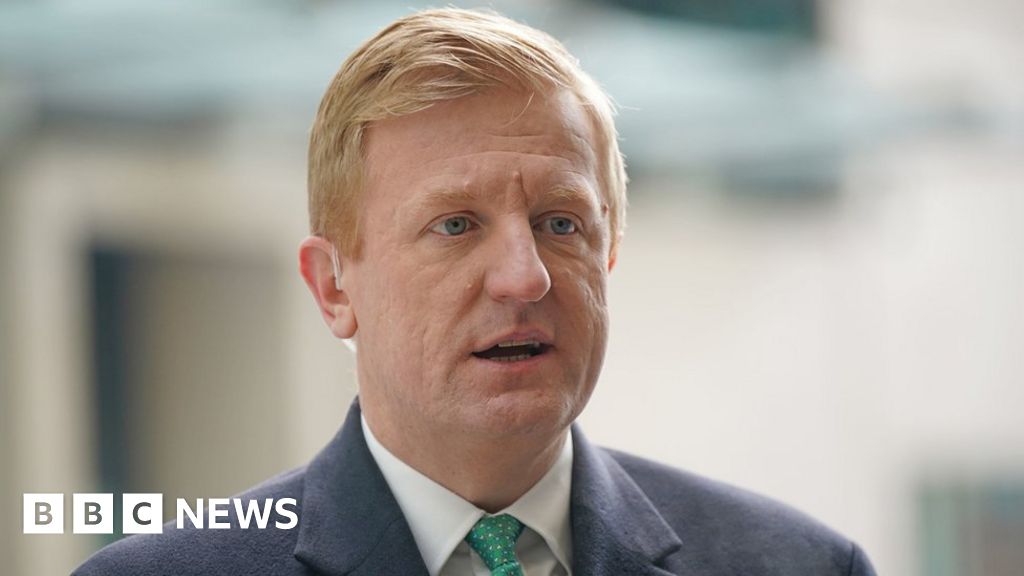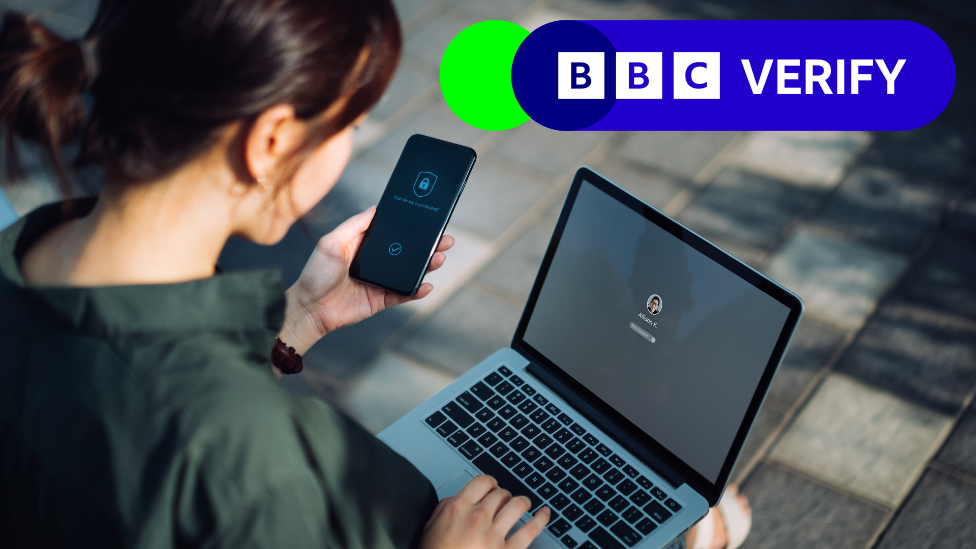This video can not be played
To play this video you need to enable JavaScript in your browser.
The UK government has formally accused China of being behind what it called “malicious” cyber campaigns against MPs and the Electoral Commission.
Two people and a company have been sanctioned over cyber-attacks.
Deputy PM Oliver Dowden said they were behind attempts to access details of MPs and peers critical of Beijing.
They are also believed to have accessed personal data of 40 millions voters, but Mr Dowden told MPs this had not compromised the security of elections.
The two Chinese nationals are Zhao Guangzong and Ni Gaobin and the company is Wuhan Xiaoruizhi Science and Technology Company Ltd, who they say work for the China state-affiliated cyber espionage group Advanced Persistent Threat Group 31 (APT31).
The UK sanctions will freeze assets, barring UK citizens and businesses from handling their funds or resources. A travel ban will also prevent them from entering or remaining in the UK.
“The UK will not tolerate malicious cyber activity,” Mr Dowden said.
“It is an absolute priority for the UK government to protect our democratic system and values.”
The Chinese ambassador is being called in to be held “to account for China’s conduct in these incidents”, Mr Dowden said.
China has consistently denied accusations of espionage and wrongdoing.
The cyber attack on the Electoral Commission between August 2021 and October 2022 was one of the most significant in British history.
Not only were databases containing names and addresses of people accessed, but also sensitive emails from its “control systems” and between election officials over six by-elections.
However, Mr Dowden said he wanted to reassure people that the attack on the electoral register “typically does not create a risk to those affected”.
‘Watershed moment’
The MPs targeted are all members of the Inter-Parliamentary Alliance on China, which scrutinises, and often criticises, the activities of Beijing.
Former Conservative leader Sir Iain Duncan Smith, former minister Tim Loughton and the SNP’s Stewart McDonald all faced harassment, failed hacks and impersonations by groups seeking to influence foreign dignitaries.
They are calling for the UK to go further and send a clear message, designating China “a threat”.
The US has done just that, announcing that the same two Chinese nationals are among a group of seven facing criminal charges of conspiracy to commit computer intrusions and conspiracy to commit wire fraud in New York.
A statement from the US Attorney’s Office states that they were involved in “malicious cyber operations aimed at threatening the national security of the United States and our allies” with a hacking group that spent roughly 14 years targeting critics of Beijing in the United States and elsewhere.
Authorities in New Zealand have also accused China of targeting its parliamentary network in 2021, with the country’s defence minister Judith Collins saying the Chinese state-sponsored group known as APT40 was behind the hacking activity.
But New Zealand said it would not introduce sanctions, as it was not part of the government’s legislative agenda.
Australia said its electoral systems was not compromised in the cyber campaigns targeting the UK, but expressed concern over what they called the “persistent targeting of democratic institutions and processes.”
The country’s foreign minister Penny Wong and minister for home affairs and cyber security Clare O’Neill said in a joint statement: “This behaviour is unacceptable and must stop. Australia calls on all states to act responsibly in cyberspace.”
Sir Iain called for more sanctions against Chinese government actors, but called the announcement “a watershed moment where the UK takes a stand for human rights and an international rules-based system”.
He said a combative proponent of the Chinese government, known as a “wolf warrior”, had been sending emails impersonating him and falsely suggesting he had altered his views on Beijing.
China should be placed in the “enhanced tier” of the new foreign influence registration scheme, which would increase scrutiny on Chinese government-backed operations in the UK.
Sir Iain said: “The West has to wake up to the fact this is a challenge to the very way that we live our lives.
“To our belief in democracy, human rights, freedom of expression, freedom of worship.
“These are the things that we hold dear, but we seem reluctant to want to defend those against the others who hold none of those virtues and values and want to take ours from us.”
Sir Iain and Mr Loughton were among among nine UK citizens sanctioned by China over exposing human rights abuses against the Uighur Muslim minority group.
Mr Loughton warned China is “in the business of trying to influence elections and democracies as well”.
He said the government’s response was “just not good enough”.
“We need much more robust action to show China that this is absolutely unacceptable and there are consequences and those consequences will be followed through. But at the moment, they’re not.”
Government concern
Labour said it would support the government to counter state actors trying to “interfere with or undermine the electoral process”.
Mr Dowden credited the Defending Democracy taskforce, a committee that tracks election threats, with pinpointing China-affiliated organisations and individuals behind cyber operations.
Sanctioning groups linked to China, a fellow member of the UN Security Council, is an escalation in the diplomatic tension between the two countries.
This marks a major change from just a few years ago, when British leaders aimed to usher in a “Golden Age” with China.
The prime minister then was David Cameron, who is now the foreign secretary.
On Monday, Lord Cameron briefed about 40 Conservative MPs and peers at a meeting of the backbench 1922 Committee for about an hour, giving what one described as a “tour of the world”.
Several MPs suggested the UK’s decision to vote for the UN Security Council Resolution on Gaza was discussed to a greater extent than relations with China, at the last session before the Easter recess.
Outside the meeting, one MP told journalists Lord Cameron suggested that the “situation has changed” since he pursued a policy of greater engagement with China as prime minister.
However, Labour said Lord Cameron’s role as vice president of a UK-China investment fund should also be investigated in case he had been chosen “to lend credibility to Chinese investment, as well as to the broader China brand”.
UK government concern over Chinese espionage and parliamentary interference has been rising.
Acknowledging the attacks last August, the Electoral Commission said “hostile actors” had gained access to copies of the electoral registers and broken into its emails and “control systems”, but added that it had neither had any impact on any elections nor anyone’s registration status.
The Electoral Commission has since taken steps to secure its systems against future activity.
In September 2023, a parliamentary researcher was arrested under the Official Secrets Act accused of spying for China.
And a year before, an unusual parliamentary interference alert was issued regarding the activities of UK-based lawyer Christine Lee.
China’s foreign ministry spokesperson Lin Jian said the government cracked down and punished all types of malicious cyber activities.
He called on all parties to “stop spreading false information and take a responsible attitude to jointly maintain peace and security in cyberspace”.
The government stresses it has rejected or wound down Chinese investment in infrastructure in recent years on national security grounds.
Related Topics
-
-
9 hours ago
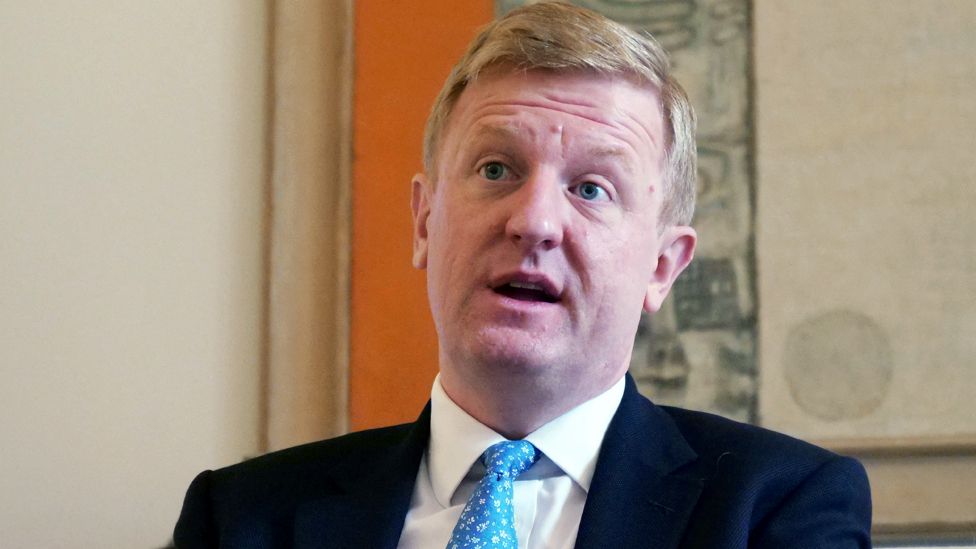
-
-
-
26 March 2021
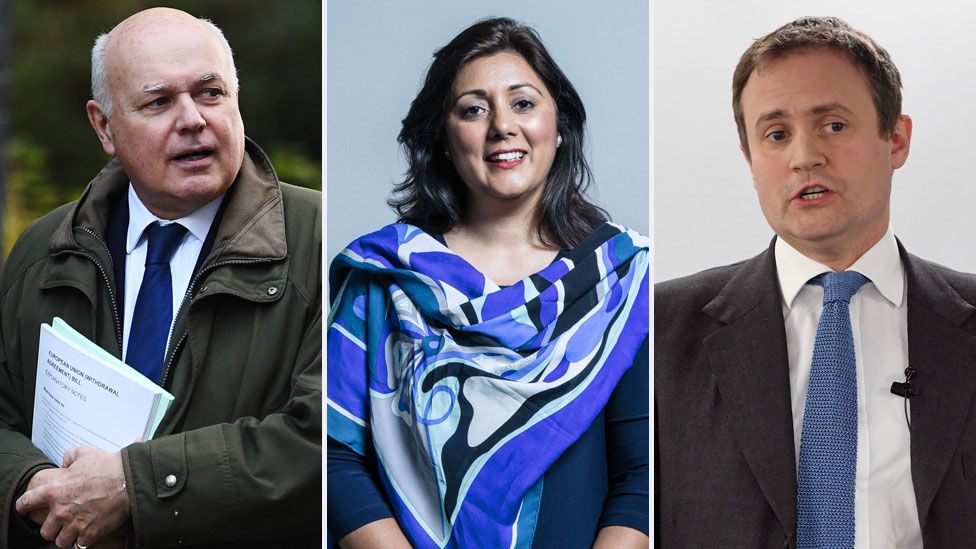
-
-
-
18 October 2023
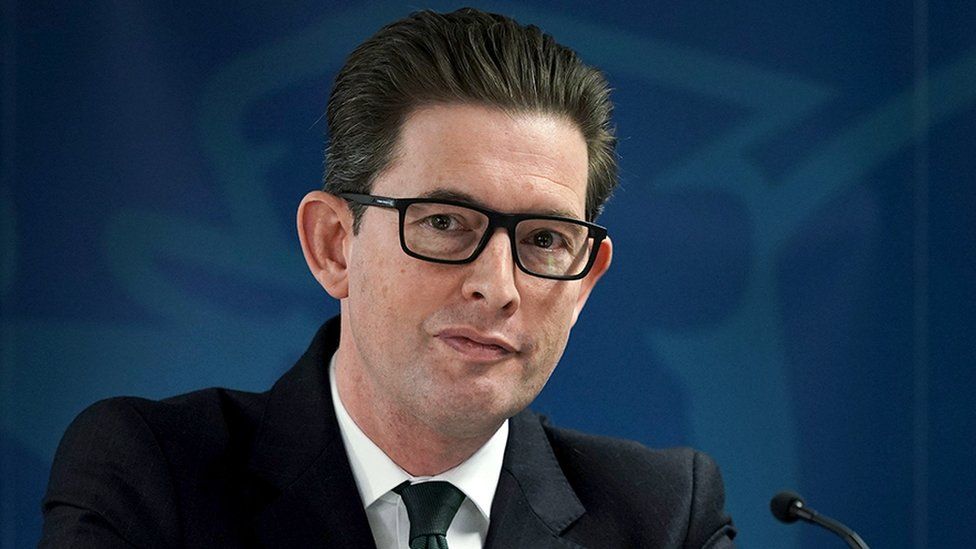
-
